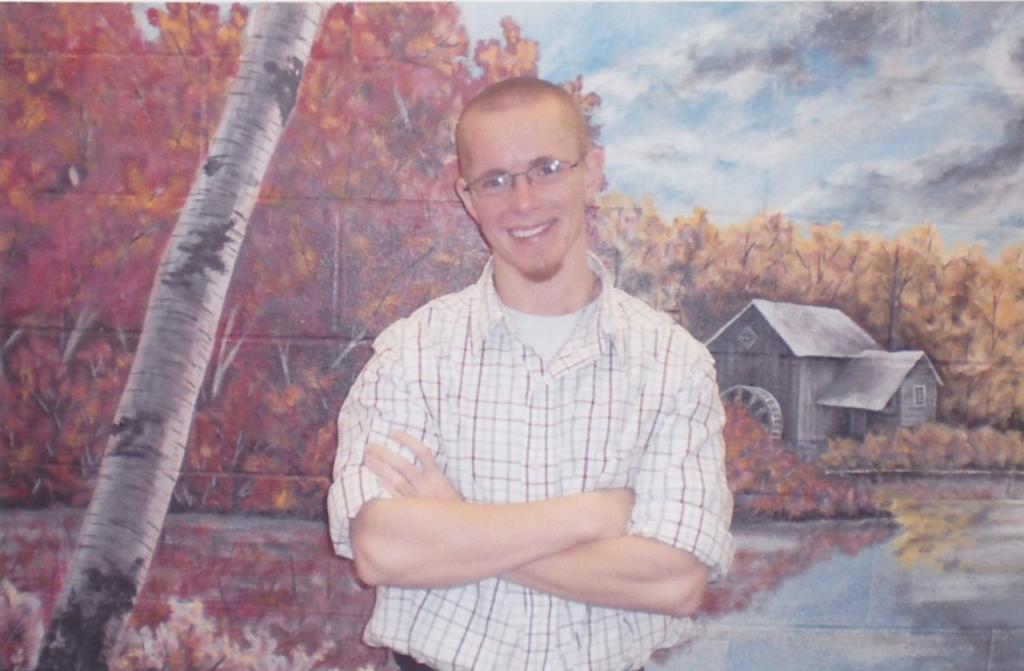By Chris Dankovich
A note from the writer: Not everyone who chooses to interact with prisoners treats us honestly . I originally wrote this piece a couple years ago, and it is a part of a story that is very close, personal, and difficult for me. Months ago, I was invited to write by editors at a criminal justice news organization, and submitted this piece after much internal deliberation. I had hoped that it would shed light on the issue of what a child going through the adult criminal justice system, and in particular one housed in solitary confinement, goes through (all the while expected to behave and defend themselves as a fully-educated, cognizant, responsible adult, despite no other circumstance where they would even be allowed to be treated as an adult).
The piece that was ultimately published was completely different from anything I had written. The headline, portrayed deliberately as if I had written it myself, screamed for the worst sort of attention. My story and voice were changed against my will, without permission. For reasons I will never understand, multiple sections were altered or removed entirely, making the story into something other than fact. And I wasn’t even told by the publication. I found out when good friends of mine contacted me about it (as I do not have access to view the writing myself). I was humiliated and ashamed for having been so trusting. I complained directly, but ultimately, nothing was done.
I have chosen to publish my original story here because I still wish the same message about juveniles going through the adult world against their wills to be spread, and Minutes Before Six has earned my trust on a regular basis a place for me, or anyone incarcerated for any reason, to speak. I hope that you feel this piece, which is very personal to me, and that it allows you for a moment to see through the eyes of the thousands of children every year who have to go through exactly what I did.
The room was white, the walls were white, and the ceiling was white. The only object in the room, apart from the mattress on the floor (gray) was a stainless-steel toilet, which in the light reflected white. It was as if the humanity had been bleached from the room. Apart from the delivery of meals (spaced equal distances apart) when I could ask the time, only shadows could keep me company. There, to the right, a message written on a window: “100% Jamaican,” written in toothpaste and feces. But remnants of a human being’s thoughts are not the same as having the actual person around. Though there, and sometimes I could see someone move, I was alone.
I was in the “Hole.” Someone said it was the “psychological Hole.” As I sat there, sometimes thinking, sometimes staring at the wall, sometimes napping (because without knowledge of time passing there can be no true sleep), I wondered whether it was called that because this was where they put people who were crazy, or where they put people to make them so. Was there a distinction? Did those charged with caring for our safety and the safety of others care themselves?
What happens when you protect a man, or a boy, physically, but deprive him of everything that makes him who he is? I had shed my tears for the past year, since my arrest, but here, having been sentenced — to what to a 15 year old is life — I could only feel anticipation for what was to come. For, from what I had heard about prison, with other people and the ability to walk around hanging out with friends if you make them and the razor inside your shaving razor if you don’t my life would be better than it was here, or than it had ever been before.
Because here I was, just sentenced to prison for longer than I had already lived, despite having been diagnosed as mentally ill by multiple psychologists and as insane by one of the world’s leading forensic psychologists. But if the court would have listened to him, I refused to. (Remember being 15 and being told that you were wrong when you didn’t believe so? Imagine being told that you, your brain, and your conception of reality and everything you know are wrong). So here I was, so crazy that I wouldn’t plead crazy even though it meant I would have been a free person sooner.
When you are alone, truly alone, with no other distractions, the only things you can hear are the whispers of demons. Not real voices (well, sometimes you can almost actually hear them), but thoughts, ones that infect your mind, your sense of self, your sense of what is real. What you feel is determined by whether you listen (eventually, with no angel standing on your other shoulder, you will) and both your loyalty to and confidence in your previous interpretation of reality (and what you feel is what matters, for who we are and what we do, while they may be influenced by objective factors, are ultimately determined by emotion and belief). A moment of doubt, of hesitation, an impression of betrayal and you will travel down a road that forks into oblivion or infamy, melancholia or violence. For there is only so much a mind can bear, particularly when what it has to bear is unlimited nothingness. The fear of falling is generally the fear of landing at the end of a great fall, but the one thing more frightening is the abyss that may never end.
Is it possible to make someone crazy? In such a short time, no, at least not permanently. I could feel it welling up, though. Hypersensitivity occurred first — I noticed the most subtle, alternating flickering of the white light, on a scale of one to ten, the difference between a 9.9 and 10– as I struggled for input, lest my mind become solely occupied with what was inside. Patterns, faces, images appeared in the texture of the painted walls, next to minute stains that I hadn’t noticed before, the origin of which I didn’t want to consider. Then came broken thoughts, followed by boredom, followed by sleep. Then came delirium, the kind you feel with a fever, or in the middle of the night upon waking from a dream that didn’t fully end, and you lie there trying to recapture it but instead your thoughts race and your heart races and you sweat and stay in that limbo of exhaustion and insomnia for hours. But this didn’t end at daybreak.
As I lay there, blanket over my head, the pinpricks of light shining through the spaces between the threads (which, for a moment, I may have thought to be stars), or sat up staring at the wall, my hands, counting the bricks (how fast could I count them?), I imagined scenarios in my mind. There, outside my door’s window, was the girl I used to talk to back in school, asking how I’m doing, coming to check on me. I blink, close my eyes, and I see my judge again and this time I can say what I want to him: some strange, soulful combination of “fuck you” and “please help me.” There, at my friend’s house, back in time (for fantasy exists outside its continuum), I pull him to the side and tell him to get rid of what he has that he shouldn’t. Then, me, outside of myself, goes and tells my past me to avoid what is about to happen that already has.
What if I could change things? What if I could go back to this moment or that, a month, a year, or five in the past? Every scenario played in my head. I thought of the fight when I was seven, at the private swim club where some kid I had never met before asked if I wanted to fight and then held my head under water while I choked and flailed until a lifeguard pulled me up and kicked him out of the pool for an hour. I thought of when I went to the hospital on my eleventh birthday, after my mother had sucker punched me and threw me head-first into our living room’s glass and wood coffee table. I thought of how the last year, spent in the high-security building of the county’s juvenile detention facility, had been the best, and ironically, the freest year of my life, having spent the previous 15 years in a house with someone who had tried to molest me and who had kept my bedroom window nailed shut and barred me from going outside. I had the knowledge now of how everything could have been different, too long after it became impossible to change a thing. Despite all the thoughts and prayers it is possible to make, the forces of nature and the tides of time would not make an exception and change their direction just for me.
Despite differences in how it happens, reality still does affect the mentally riven. The impotence of my mind to produce any physical results in my position in space or time (not that I would have expected it to, if you would have asked. . . I’m not crazy like that…) changed the direction and purpose of these waking dreams. Soon I merely imagined a companion, someone to anesthetize my loneliness, my insecurities: a beautiful girl, with a name that I could whisper as if she were actually there (like Wilson the volleyball in the movie Castaway). A woman (for masculine energy, even if it is pathological, needs its compliment), imagined to be there with me to talk to, to hold, to hold me. Never actually seen (not for real), she was felt, my blanket piled next to me, my arm around it, or pulled tight around me and against my back.




No Comments
Beëdigd kluizenaar
November 26, 2016 at 10:42 pmWhat to say. It was so hard to read, too much for one go. So I read it in three bouts. Impossible to comprehend that you lived it. I don't understand that ANY sane or reasonable person doesn't see that solitary confinement is torture. I'm surprised you lived through it to the other end.